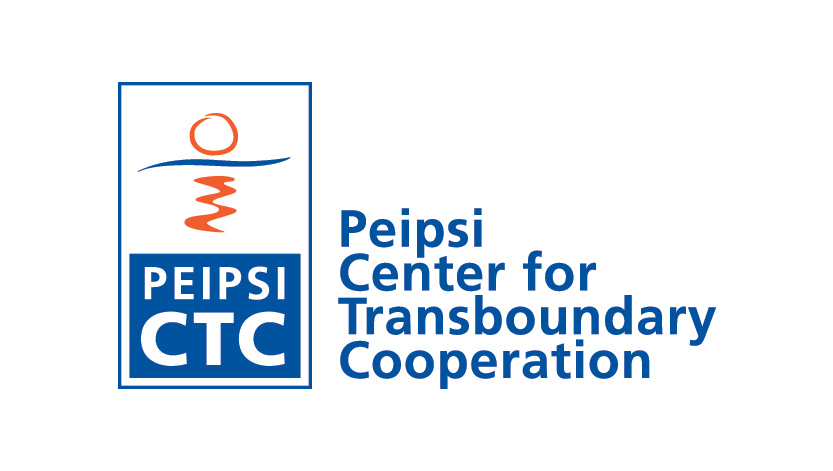EE-LV00228 Lake Peipsi area and Cesis region cross-border community inclusion program (Rooted Heritage)
Union co-financing rate 80%: : 69721,60 euros
Peipsi Center for Transboundary Cooperation
Cēsis Municipality
Associated partenrs:
Peipsimaa Museum
Mustvee Cultural house
Lielstraupe Castle
The aim of the Rooted Heritage project is to strengthen community cohesion and sustainable preservation of cultural and natural heritage by meaningfully involving at least 26 older participants, whose activities create the basis for long-term cooperation and a heritage-valuing lifestyle in the Peipsi and Cēsis regions.
The "Rooted Heritage" project is working to preserve and promote the rich cultural and natural heritage of the Mustvee and Cēsis regions, with an aim to protect and promote regional heritage plants, engaging local communities as active participants. Exploration, preservation and cultivation of heritage plants, as well as the maintaining and creating heritage gardens, is currently a topic of growing interest in Latvian and Estonian society. People associate heritage gardens with exploring their identity and enhancing the attractiveness of their living environment. It is also a topic that reaches over national borders connecting shared natural and cultural heritage values across broader regions.
Heritage plants represent more than just biodiversity—they are living links to the past, carrying the cultural, historical, and environmental narratives of a region. Their preservation helps safeguard traditional knowledge and maintains ecological balance. Heritage plants (also known as landraces) are plants that have adapted to the local climate and growing conditions and have been grown in the area for over 50 years. Old garden plants are an important part of regions material and spiritual cultural heritage.
In Mustvee community heritage plants refer to Peipsimaa's gardening traditions reflect the Old Believers’ lifestyle, with a focus on growing plants that are practical. These plants are: Peipsi onion, cucumbre, tomato, chicory. In Cesis, meadowsweet, common yarrow etc.
Rural depopulation has left many older adults feeling isolated and socially excluded. The "Rooted Heritage" project addresses this by implementing a cross-border community inclusion program designed to engage and connect rural residents, with a focus on involving at least 26 older adults (50+ years old) in various activities related to heritage plant preservation. By involving this vulnerable group to meaningful hand outdoor activities, the project fosters a sense of belonging, promotes social cohesion, and empowers participants with practical skills in plant cultivation and conservation. These skills not only enhance individual well-being but also contribute to broader biodiversity and sustainable development efforts within their communities.Joint projects allow communities in both countries to share knowledge, tools, and practices, ensuring efficient use of resources. For example, Estonian and Latvian experts can exchange techniques for sustainable plant care and community-led conservation initiatives.
The key activities include:
-Four joint training sessions will cover topics such as identifying, cultivating, and caring for regional heritage plants using traditional and sustainable methods.
-Four cross-border study trips to local farms, heritage gardens, and cultural sites will offer participants hands-on experiences and practical knowledge exchange.
- The project will end in a public event held during the Lielstraupe Castle Festival in Straupe (aug 2026).''
Results
On 18-19.09.2025, a training session on regional heritage plants and biodiversity took place.regional heritage plants and biodiversity. During the training and practical workshops, trainers will demonstrate techniques such as seed collection and preservation, soil preparation, and organic farming methods. Study visit: Participants learned about heritage plants historically grown in the region and observed traditional planting and harvesting methods. Agenda.
Presenation: Heritage plants
In October 23rd to 24th 2025 the training and Study Tour: Planning historical gardenswas organised. AGENDA
VĒSTURISKIE UN MŪSDIENU DĀRZIKOPĪGAIS UN ATŠĶIRĪGAIS TO VEIDOŠANĀPart II
Training focused on the identification and cultivation of regional heritage plants, with special attention to species unique to the Lake Peipsi and Cēsis regions. Participants gained practical knowledge about heritage gardening principles and sustainable practices.
A hands-on workshop was dedicated to developing a vegetable garden plan for Lielstraupe Castle. Participants from both Estonia and Latvia were collaborate in mixed groups, sharing their experiences and ideas.









